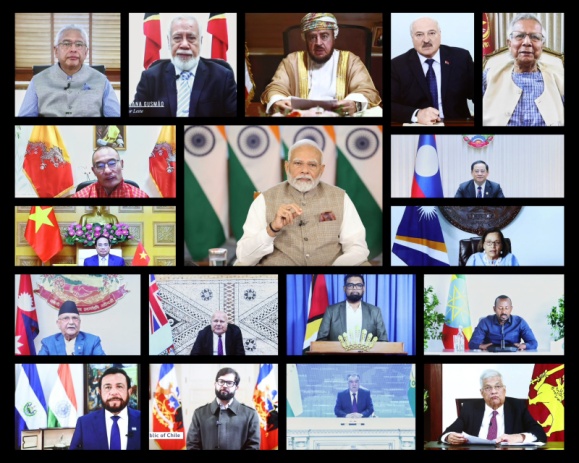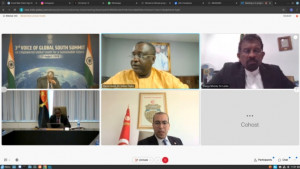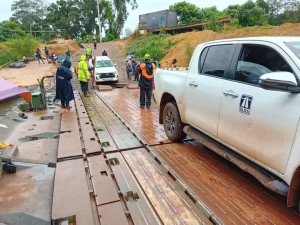By Amin Kef (Ranger)
Building collapses have emerged as a critical concern in Freetown, Sierra Leone, particularly during the rainy season when the risk is heightened. Recent incidents, including the collapse of a three-storey building in Regent and a four-storey structure in the Wellington community along Joshua Street, have tragically underscored the urgent need for improved construction practices and robust regulatory oversight. The four-storey building, situated at SS Camp in the hills above Freetown, collapsed at midnight amid heavy downpours, resulting in significant loss and destruction.
These catastrophic events not only lead to loss of life and property but also erode public trust in the construction industry and regulatory institutions. The Wellington collapse claimed the lives of four individuals, while the incident in Congo Town resulted in two fatalities and two hospitalizations. The latter collapse also destroyed five vehicles parked on the ground floor, which was being used as a garage. Initial investigations suggest that the collapse was due to a combination of poor construction design and the use of substandard building materials. In total, three construction workers were rescued from the rubble and taken to the hospital following the incident.
In light of these tragedies, the Minister of Lands, Housing, and Country Planning, Dr. Turad Senesie, has taken decisive action by ordering the immediate evacuation of a seven-storey building at the University of Management and Technology (UNIMTECH) over safety concerns. This directive, issued on August 14, 2024, during a meeting at the Ministry’s Youyi Building office, reflects a growing recognition of the urgent need to address structural safety in educational institutions.
Dr. Senesie expressed grave concerns regarding the building, which currently accommodates approximately 5,000 students, emphasizing that it is unfit for use and poses a significant threat to their safety. He revealed that no building permit was obtained for the facility’s construction, nor were any architectural or structural drawings submitted to the Ministry for approval. This lack of compliance with regulatory standards has heightened the government’s concerns and underlines the critical need for rigorous enforcement of building codes.
The increasing frequency of building collapses in Freetown can be attributed to a persistent lack of adherence to building codes and standards. Many individuals construct buildings without the necessary permits from the Ministry of Lands, Housing, and Country Planning, significantly compromising structural integrity. This disregard for established regulations fosters unsafe building practices and raises the likelihood of catastrophic failures.
A critical factor in construction safety is the assessment of soil and topography prior to building. The viability of a structure is heavily influenced by the underlying soil conditions and geographical features of the site. Without thorough geological surveys, builders may unknowingly place structures on unstable ground, resulting in disastrous outcomes, particularly during the rainy season when soil saturation can weaken foundations. The recent collapses in Regent, Congo Town, and Wellington serve as stark reminders of the consequences of neglecting these essential assessments.
Moreover, the quality of materials used in construction plays a vital role in ensuring safety. Reports indicate that substandard materials, such as inferior iron rods, are often employed in building projects. The diameter and quality of these materials are crucial for maintaining the structural integrity of a building. When builders opt for cheaper, low-quality materials to cut costs, they jeopardize the safety of the entire structure, endangering not only occupants but also surrounding properties and the broader community.
To effectively address these challenges, it is imperative that building construction be overseen by licensed architects and engineers. These professionals are trained to adhere to safety standards and building codes, ensuring that structures are designed and constructed with the utmost care and precision. By mandating that a licensed architect or engineer oversee every construction project, the likelihood of structural defects and collapses can be significantly reduced.
Furthermore, accountability must be firmly established within the construction industry. Should any structural defects be identified, or if a building collapses, the license holder should face serious repercussions, including the revocation of their license and legal accountability for the failures. This approach will deter negligence and encourage professionals to uphold the highest standards of safety and quality in their work.
The current institutional framework for monitoring and enforcing building regulations in Freetown is markedly weak. Regulatory institutions often lack the capacity to effectively oversee construction practices, resulting in a failure to enforce compliance with building codes. This oversight gap allows unsafe structures to be erected without proper scrutiny, leading to tragic outcomes. The absence of a robust regulatory framework creates an environment where builders can operate with impunity, prioritizing profit over safety.
Additionally, the lack of comprehensive building codes exacerbates the situation. Many builders operate without formal guidelines, leading to a patchwork of construction practices that vary widely in quality and safety. This inconsistency not only endangers lives but also contributes to the growing problem of informal settlements, where buildings are often erected without regard for safety or compliance.
The Institute of Engineers has repeatedly raised concerns about the pressing need to formulate and enforce comprehensive building codes. Their calls for action highlight the importance of establishing clear guidelines that govern construction practices, ensuring that safety standards are met. Such measures are essential for fostering a culture of accountability within the construction industry.
In addition to regulatory measures, community awareness and education are vital in preventing building collapses. Many individuals, particularly in low-income communities, may not fully understand the risks associated with substandard construction practices. Public awareness campaigns can play a crucial role in educating residents about the importance of using quality materials, obtaining proper permits, and adhering to building codes.
Community engagement is essential for fostering a culture of safety. Local leaders, NGOs, and educational institutions can collaborate to provide training and resources for builders and homeowners. Workshops and seminars can be organized to inform the public about the dangers of using substandard materials and the significance of proper construction practices. Empowering communities with knowledge can lead to more informed decisions and ultimately contribute to safer building practices.
Addressing building defects is not solely about preventing new collapses; it also involves a proactive approach to maintaining and reinforcing existing structures. Regular assessments can help identify weaknesses early, allowing for timely renovations that can save lives and property. Buildings exhibiting signs of structural deficiencies should be marked for immediate inspection, with builders held accountable for any violations.
In many cases, renovation and reinforcement can significantly extend the lifespan of a building while ensuring the safety of its occupants. Building owners should be encouraged to invest in regular inspections and maintenance, much like how one would service a vehicle. This proactive approach can prevent minor issues from escalating into major problems that could lead to collapse.
In light of the ongoing challenges posed by building collapses in Freetown, it is crucial for regulatory institutions to strengthen their enforcement mechanisms. Collaboration between government agencies, construction professionals, and community stakeholders is essential to foster a culture of safety and accountability in the construction industry.
The Government must prioritize the training and empowerment of regulatory bodies to ensure they can effectively oversee construction practices. This includes providing adequate resources, training personnel, and establishing clear lines of communication among various stakeholders. By enhancing the capacity of regulatory institutions, a more robust framework for monitoring and enforcing building standards can be established.
Moreover, public awareness campaigns can play a vital role in educating the community about the importance of safety in construction and the risks associated with substandard practices. Engaging local media, community organizations, and educational institutions can help disseminate information and foster a culture of safety.
Conclusion
Addressing the issue of building collapse in Freetown requires a multifaceted approach that prioritizes the establishment of building codes, proper soil assessment, quality materials, regulatory enforcement, and ongoing maintenance. By implementing these measures, a safer built environment can be created that protects the lives of citizens and fosters sustainable development in the community.
The time for action is now; stakeholders must work collaboratively to prevent further tragedies and build a resilient future for Freetown. The recent incidents in Regent, Congo Town, and Wellington, along with the Minister’s directive regarding the UNIMTECH building, should serve as a wake-up call for all involved in the construction industry. By prioritizing safety, adhering to regulations, and fostering community awareness, we can ensure that our buildings are not just structures but safe havens for all who inhabit them. The path forward is clear: it is time to take decisive action to safeguard the lives of citizens and build a brighter, safer future for Freetown.
























